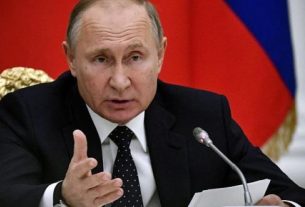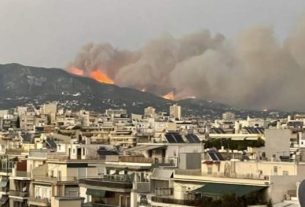There has been a significant decrease in the reexport of sensitive goods from Türkiye to Russia in the past months, a European Commission spokesperson has said, underlining that Brussels’ goal is to deprive Russia of accessing technology necessary to continue its occupation of Ukraine.
“The EU welcomes the decrease in the direct reexports of sensitive items from Türkiye to Russia for the first quarter of 2024,” Francesca Dalboni, spokesperson for financial services, financial stability and Capital Markets Union, told a group of Turkish reporters at a meeting in Brussels.
The EU has adopted 13 sanctions packages against Russia since the start of the occupation of Ukraine in early 2022. Türkiye has not joined the sanctions as it is not a member of the EU but assured the bloc that it will not become an avenue for the circumvention of these sanctions.
The EU has been asking Türkiye to ban the reexport of around 50 sensitive goods produced in the EU to Russia. As a result of the Ankara-Brussels dialogue, the reexports of such products from Türkiye to Russia, including chips, optic readers, etc, decreased from 17 million euros to 5 million euros per month.
Stressing that the EU’s main objective is to deprive Russia of accessing the technology necessary to wage its war against Ukraine, the spokesperson said, “Our engagement with third countries including with Türkiye has focused on finding mutually agreeable ways to stop this illicit trade.”
Türkiye, in principle, is complying with sanctions only adopted by the U.N. Security Council. Unilateral measures taken by the EU, the United States and the United Kingdom are not endorsed by Ankara.
EU urges false transit from Türkiye to Kazakhstan
Despite the decrease in the direct reexport from Türkiye to Russia, the spokesperson recalled an increase in what she calls a suspicious trade from Türkiye to Kazakhstan.
“The EU has identified that suspicious trade of these items from Türkiye to Kazakhstan has increased significantly and that these goods never actually never reach their ‘declared destination,’” she stated.
“The EU is very concerned by this ‘false transit’ pattern and raised this issue with Turkish authorities so that they take action to stop these goods from being illegally diverted to fuel the Russian military war effort,” the spokesperson added.__Daily Hurriyet





